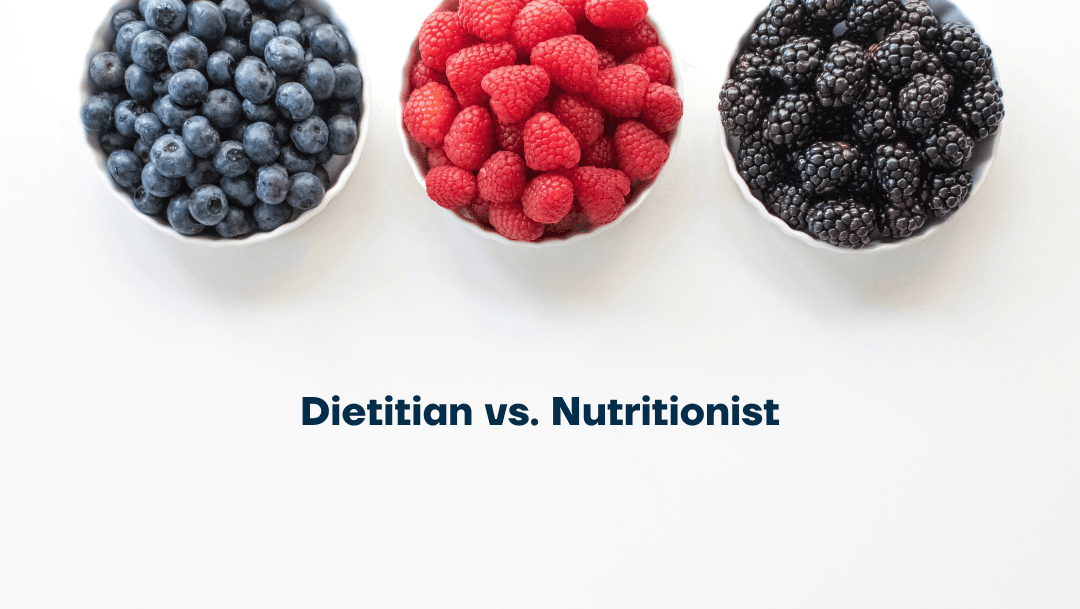All Categories
Featured
Table of Contents
-1
And if you want to obtain into the food and nourishment sector, it deserves understanding what those differences are currently. This fast failure needs to offer you a great idea. Dietitians aid their clients navigate the link between food and health and wellness. They do this by translating the latest clinical and medical research study into sensible suggestions that individuals can put on their lives.
-1Nutritionists normally work in team settings, enlightening bigger communities and organisations. They can likewise operate in various other fields such as: Evaluation plans and laws around foods, including quality checks. Make sure that food is produced to meet food safety standards. Create programs and interventions to aid the broader public address food problems.
-1The main distinction to recognize is that the nutrition occupation isn't regulated in Australia. This suggests that technically, any individual can call themselves a 'nutritional expert', while you must have an accepted dietetics certification to be a dietitian. To secure correctly practising nutritional experts, the Nourishment Culture of Australia has a Register of Nutritionists.
-1The average wage for a nutritional expert is $75,000 per year. This can range from $60,000 to $90,000, depending on the role.
Vegan Dietitian – West Perth
-1Eager to collaborate with customers on their dietary objectives quicker rather than later? Examine a level in nutrition. Want to take your experience even better, and help treat diet-related clinical conditions? An occupation as a dietitian could be best for you. In either job, you will certainly play an important duty aiding individuals make the very best choices for their diet and health and wellness.

-1
Dietitian and nutritional expert: both of these careers work around diet regimen and food, however are they the very same? What specifically is the distinction between a dietitian and a nutritional expert?
-1Regardless of the distinctions in certifications between a dietitian versus nutritional expert, the wages are rather comparable. Both nutritional experts and dietitians earn approximately $75,000 to $95,000 a year nonetheless, salaries can differ substantially relying on area and experience. While there is a greater demand for certified dietitians, nutritionists often tend to have higher work contentment.
Medical Dietitian – Perth 6005
-1You can work in a huge range of markets for a wide array of organisations or also for yourself. If you're still unsure regarding whether to become a dietitian versus a nutritionist, the following may aid you choose. As a dietitian, you can delight in a career as a: a signed up dietitian or dietitian nutritionist is a person who works in the basic location of dietetics, recommending diets, supplementation and dietary aids to support healthy way of livings and disease management.
-1To end up being nationally approved, dietiticians should join the Accredited Practising Dietitian (APD) program and become a participant of Dietitians Australia. Whether dietitian or nutritionist is a better career for you far better relies on your personal preferences. It's vital to note that all dietitians are nutritionists, but not all nutritionists are dietitians.
Meal Planning ( Perth 6005)
-1Both occupations are involved with helping individuals attain their health goals via food education, but there are several factors that establish them apart. If you want suggesting people on dietary and nutritional issues, you may have what it requires to end up being a nutritional expert or diet professional. The area of food scientific research is unbelievably broad, offering a series of career chances to certified specialists.
-1Nutritional experts specialise in giving evidence-based suggestions and services connected to nourishment. With normal appointments, nutritionists help clients comprehend the web link between diet plan and wellness so they can make more enlightened decisions around food and live a much healthier way of life. Nutritionists generally deal with customers on an individual basis, although they likewise deal with groups with a certain aim (e.g.
Nutritionist For Weight Loss – Perth
-1Despite the fact that you do not need to study to become a nutritionist, doing so can improve your opportunities of progressing your occupation in this area. Programs that have a specialized in Nutrition, like the HLT43015 Certification IV in Allied Wellness Assistance (Nutrition and Dietetics Expertise), are developed to create your understanding of the relationship in between food and health and wellness, allowing you to provide skilled suggestions on nutrition.
Clinical Dietitian – West Perth 6005
-1Jul 09, 2018 Australia presently does not control the professional titles 'nutritionist' or 'dietitian', leaving a vast market for misinformation if you do not do your very own research study. The media additionally has a tendency to utilize the two terms mutually, making differences in between qualifications progressively difficult. Keep reading as we damage down the differences in between these occupations, their appropriate qualifications, what they can do for you and what to look for when trying to find a professional to aid you.
-1So you have made a decision that you require to improve your wellness and that servicing your diet plan is the very best place to start. You have actually heard about the advantages of dealing with a dietitian or a nutritional expert, but you aren't sure which you require or how to select that to collaborate with.

-1
The primary distinctions are the type of study that has actually been completed by each professional, and the guidelines attached to each title. A dietitian has satisfied the national and worldwide requirements for professional legislation. Dietitians are the only nourishment professionals to be managed by regulation, and they are governed by an ethicality (a lot like medical professionals are) to make sure that they constantly function to the highest possible requirement.
-1On the other hand, someone that has the title of a nutritionist is not secured by regulation in several nations, and it is not a controlled term. All dietitians are considered to be nutritional experts; nonetheless, nutritionists without a dietetics credentials can not handle the been experts role of a dietitian. For somebody to come to be a registered dietitian, they require to have finished a 4 year college level in Nutrition and Dietetics, or a 3-year science level followed by a Masters Degree in Nutrition.
Medical Dietitian – Perth

-1
Since all of this info has actually been offered, we can redirect our emphasis to the rival end of this diet professional vs nutritional expert discussion. On an all natural level when reviewing 'what is the distinction between a diet professional and a nutritional expert?', we can say the functions do not differ extremely. Dietitians will certainly still organise food and nutrition strategies, in order to promote a healthy and balanced way of living among their customers.
-1Dieticians can likewise work in academic facilities such as Colleges. Unlike this, the largest difference in between a nutritional expert and dietitians in the UK is that nutritional experts to function in clinical sectors. Holistic Nutritionist. Rather, they can function within the health and wellness and physical fitness sector in roles such as nutritional experts in food distribution firms, as well as a personal trainer that supplies guidance and suggestions to their clients
-1This brings us on to talking about the next distinction between a diet professional and nutritional expert in the UK. You may have reviewed this heading and questioned 'is there a difference in between a dietician and a nutritionists' customers?'. It's only natural to presume that any individual seeing either professional will be doing so for similar factors, but this is not the situation.
Latest Posts
How Do I Choose A Sports Nutritionist Service?
Pediatric Dietitian – Dunsborough
What Is The Best Consultant Nutritionist Service?